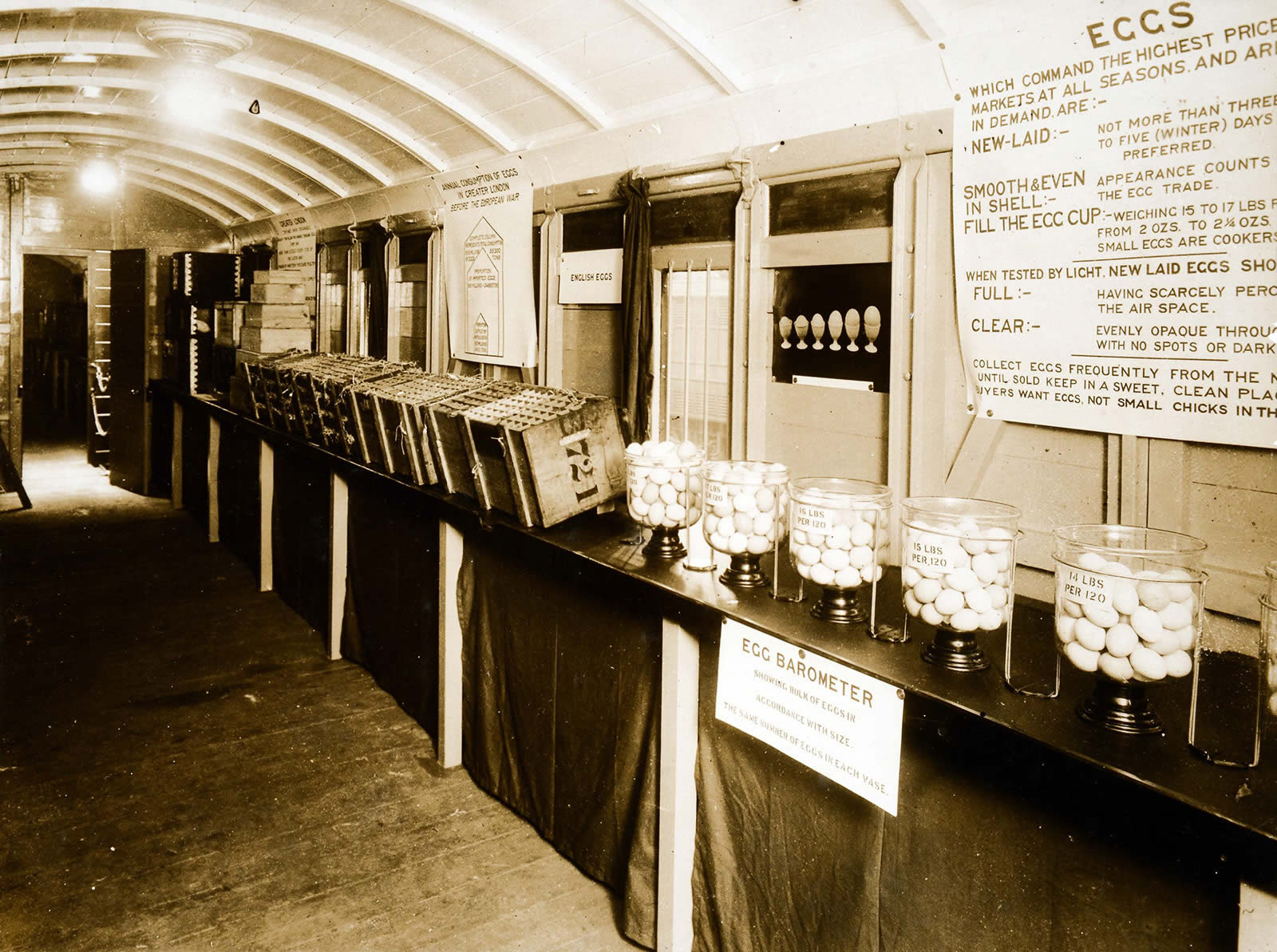Egg trains and travelling kitchens
Food shortages and rationing during the First World War meant that families across Britain had to change their eating habits. A number of schemes helped families become more self-sufficient, or ensure that they were making the most of what they had.
The Great Eastern Railway ran an Egg and Poultry Demonstration Train throughout Norfolk and Suffolk. It gave visitors a chance to learn from experts on different breeds of poultry; how to hatch, rear, feed and house the chickens; and what to look for when grading eggs – with tips on how to test the age and quality of an egg without breaking the shell.
The train catered to all levels of interest: it had great vats of various sized eggs and illustrations for school children, and gadgets, such as the Dutch revolving egg-tester, for those interested in technology. There were leaflets to take home, supplied by the Board of Agriculture.

Egg and Poultry Demonstration Train, October 1916 (catalogue reference: RAIL 227/384 (3))
In the capital, the London County Council in connection with the Women’s Institute established travelling kitchens. Rather than encouraging self-sufficiency, they helped housewives make the best use of what was available under voluntary rationing. The arrival of a specially adapted motor car in each borough was met with great excitement – the Mayor often attended classes, which were held in town halls, and gave a short speech before each session began.
The demonstrators who led each class covered topics such as meat and wheat substitutes, the economical use of sugar, and how to budget and plan for a week. As a result of the sessions housewives could adapt their pre-wartime routines and were able to adopt voluntary rationing.
Increasing self-sufficiency and enabling people to adopt rationing voluntarily were of great importance to the government. As a Ministry of Food pamphlet advertising the travelling kitchens stressed, due to the low wartime food stocks:
‘with regard to food there are no rich people. We are all poor. Never before did a housewife’s problem claim so much attention!’

